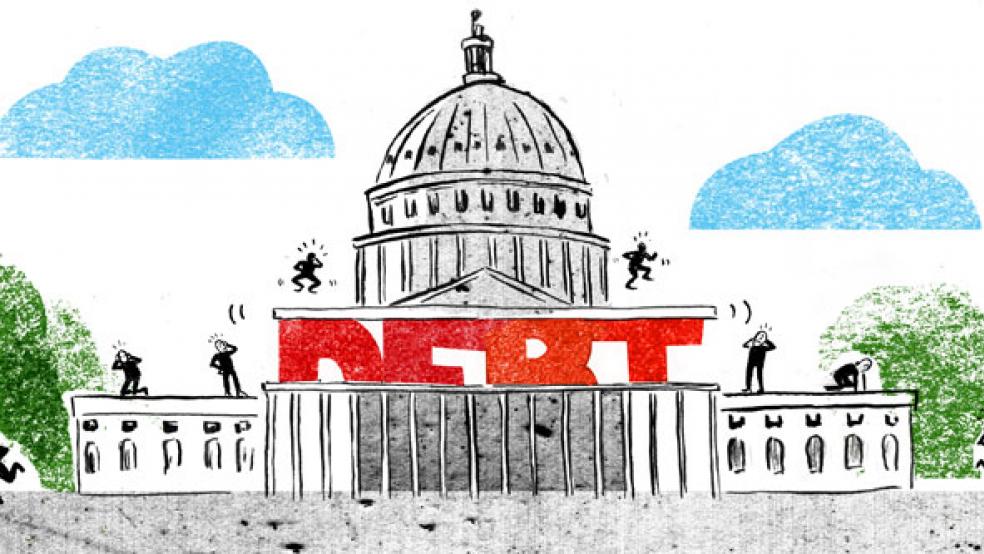Democrats are set to raise the federal government’s $28.9 trillion debt limit by $2.5 trillion, enough to avoid any further standoff over the nation’s borrowing cap until after the 2022 midterm elections and into 2023.
The Senate approved the increase Tuesday afternoon in a 50-49 party-line vote, with all Democrats backing the measure and Republicans opposed. GOP Senator Cynthia Lummis of Wyoming reportedly is sick and did not vote, eliminating the need for Vice President Kamala Harris to cast a tiebreaking vote.
The bill now heads to the House of Representatives, where it is expected to pass in another party-line vote, sending it to President Biden’s desk.
The $2.5 trillion increase is the largest ever in dollar terms, according to Roll Call, but smaller in percentage terms than increases passed in 2010 and 2011.
The legislation was cleared by the Senate using a one-time, fast-track process agreed to under a bipartisan deal last week. It covers debt accumulated by both parties and staves off a potential default just ahead of the deadline set by Treasury Secretary Janet Yellen, who had told lawmakers that the government might exhaust its ability to pay its bills by Wednesday.
“No brinksmanship, no default on the debt, no risk of another recession: responsible governing has won on this exceedingly important issue,” Senate Majority Leader Chuck Schumer said on the Senate floor Tuesday morning. “The American people can breathe easy and rest assured there will not be a default.”
Schumer thanked Senate Minority Leader Mitch McConnell (R-KY) and other Republicans for working with Democrats to address the issue and allow the one-time change to Senate rules. The bipartisan agreement to expedite the process followed months of partisan clashes, as Republicans insisted Democrats would have to raise the debt limit on their own and pushed for them to do it using the special budget reconciliation process being used for the Build Back Better social spending and climate plan.
McConnell, in the end, agreed to a deal that drew some grumbling from fellow Republicans — and a barrage of attacks from former President Donald Trump. "He didn't have the guts to play the Debt Ceiling card, which would have given the Republicans a complete victory on virtually everything,” Trump said in a statement Sunday.
McConnell, though, insisted that he had achieved his political aims by making Democrats raise the debt ceiling on their own and forcing them to raise it by a specific amount rather than suspend it for a period of time. Republicans had targeted that outcome as they look to continue hammering Democrats over their spending — which is precisely what McConnell did Tuesday.
“If they jam through another reckless taxing and spending spree, this massive debt increase will just be the beginning,” he said on the Senate floor. “More printing and borrowing — to set up more reckless spending to cause more inflation, to hurt working families even more.”
The bottom line: The months-long drama over raising the debt limit is finally about to end, though the new debt limit could create trouble for President Biden — and a major fiscal crisis — in 2023 if Republicans win back control of the House or Senate next year.
The Washington Post’s Mike DeBonis reports:
“Conservative lawmakers, anticipating the GOP retaking one or both congressional majorities in next year’s midterm elections, are already calling for and strategizing around a fiscal clash in 2023, insisting on using the threat of federal default to place new curbs on government spending and reduce the $28 trillion national debt.
“What they are envisioning is, at a minimum, a return to the brinkmanship seen the last time a Democratic president confronted a new Republican majority, in 2011. It already threatens to become the dominant domestic political clash ahead of the 2024 presidential election.”





